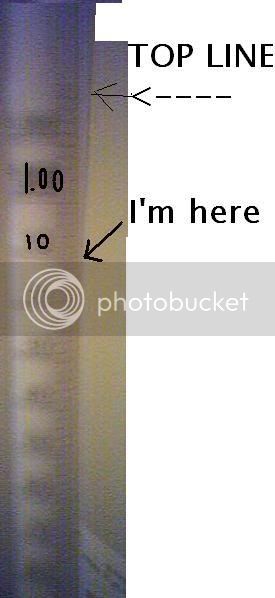bobbydigital
Well-Known Member
I just bottled it... took a reading at it was at 1.01
So that like less than 2% alchol.... what am i going to do with that!!!
I used 2 liquid malt bottles and one pound of honey...
Danggggggggggggggggggggggggggggggggg!!!!!!!!!!!
i seriously dont know why i even bottled it.. I could done like 10 more bottles and just got mad and poured rest out.
(had alot of probs getting wort chilled... put in at 90 which was too hot, and it was hydrating for like over 40 min cause i couldnt get temp down....prob killed alot of the yeast.)
So that like less than 2% alchol.... what am i going to do with that!!!
I used 2 liquid malt bottles and one pound of honey...
Danggggggggggggggggggggggggggggggggg!!!!!!!!!!!
i seriously dont know why i even bottled it.. I could done like 10 more bottles and just got mad and poured rest out.
(had alot of probs getting wort chilled... put in at 90 which was too hot, and it was hydrating for like over 40 min cause i couldnt get temp down....prob killed alot of the yeast.)





